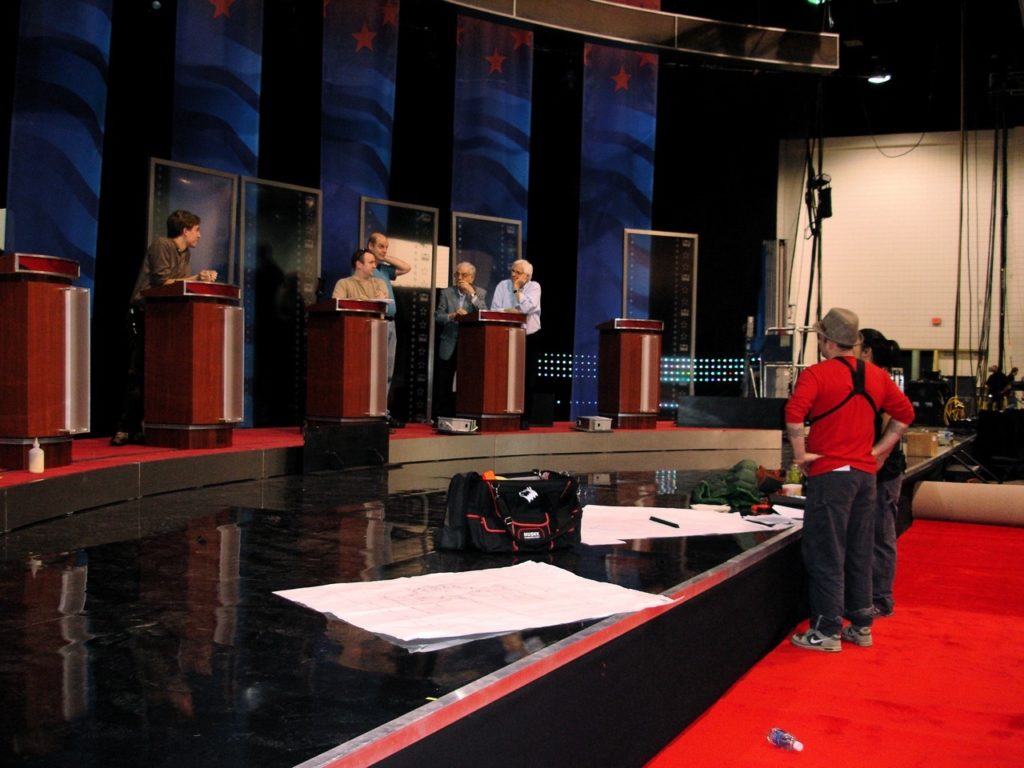The Peninsula
U.S. Presidential Debates Enter Rhetorical Overdrive

By Phil Eskeland
We have now completed six debates among the candidates vying to become the next president of the United States – four Republican and two Democrat debates. There will be three more debates – possibly four – before the first votes are cast in Iowa to select the presidential nominees to represent the Democrat and Republican parties. What clues can we detect in these debates thus far about how the candidates view foreign policy, international trade, and, more specifically, relations with the Republic of Korea?
Because of the large number of viable Republican candidates, the GOP debate format divided the aspirants into two tiers – those with national poll numbers above and below a certain threshold. This gave more opportunities to hear diverse opinions on a broad range of issues from the candidates but insufficient time for them to delve too deeply into details. Many candidates referred to their websites so that voters could obtain more information about their position on certain issues. The Democrat candidates did not have this difficulty of being heard, particularly in the second debate after the field was winnowed down from five to three aspirants. Some of the debates had a certain emphasis so foreign policy issues were not priority questions during a debate that focused primarily on the domestic economy.
Nevertheless, while domestic issues such as budget, taxes, and regulatory reform dominated the discussion, three themes have emerged:
1) Even before the terrorist attacks in Paris, the hawkish wing of the GOP dominated the defense debate discussion while the Democrat candidates wrestled with this issue, particularly with the entry of Vermont Senator Bernie Sanders into the presidential contest. Much of the national security discussion focused on the challenges facing the United States in the Middle East. Kentucky Senator Rand Paul was challenged on several occasions by other GOP presidential candidates on how he would forcefully respond to national security threats while Senator Sanders struggled in responding to a question regarding the parameters as to when he would use military force.
2) The voices for free trade have difficultly being heard in the Democrat party while noises against trade are becoming louder in the GOP. Interestingly, when the debates focused on what can be done to strengthen the U.S. economy and create jobs, no candidate in either party – unlike in past presidential debates – raised opening markets in other countries to U.S. goods and services through trade agreements as a solution. Only one candidate – Ohio Governor John Kasich – spoke in favor of the Trans Pacific Partnership (TPP) during the November 10th debate while businessman Donald Trump railed against U.S. trade policy in general (“we lose on trade”) and Senator Paul spoke against Trade Promotion Authority (TPA) for the President. During the October 13th debate, former Secretary of State Hillary Clinton said that the TPP does not meet her standards anymore. However, in response to a question on tax policy during the November 10th debate, Texas Senator Ted Cruz discussed his proposal to institute a border-adjustable 16 percent business flat tax as a tool to “let America compete with China and the world on a level playing field” because under his tax plan, U.S. exports would be shipped abroad tax-free.
3) When Asia was discussed at all, it was primarily in the context of confronting China’s actions in the South China Sea and their cyberattacks on the United States. Any discussion about the Korea peninsula focused briefly on North Korea’s nuclear weapons as a challenge that will confront the next president but no specific policy ideas were raised to address this problem. One bright moment for Korea-watchers occurred during the September 16th debate held at the Air Force One Pavilion of the Ronald Reagan Presidential Library when Florida Senator Marco Rubio said that one of his first visits abroad, if elected president, would be to South Korea.
While the debate moderators and candidates did not spend too much time on international issues, it is not unusual for presidential debates, particularly during the primary season, to center more on U.S. domestic issues such as taxes, spending, and the economy that directly relate to the pocketbooks of the American people. However, when there was discussion of foreign policy, the bipartisan consensus to stand with our allies came through in all of the debates. With respect to Asia, there was also a bipartisan consensus that the actions taken by China in the South China Sea to fortify islands on disputed territories and the cyberattacks on U.S. interests must not stand.
Finally, with respect to trade, it is important to keep in mind that sometimes overheated rhetoric on the campaign trail does not necessarily translate directly into public policy. For example, in 2008, President Barack Obama campaigned to renegotiate the North American Free Trade Agreement (NAFTA) but once in office, he worked to enact into law the Colombia, Panama, and Korea FTAs, pushed for TPA, and concluded the TPP talks. While international trade was not raised much during these debates, except by the detractors, the silence of the other candidates should not lead to an assumption they acquiesced to the opponents of free trade. However, their mute behavior is more reflective of the fact that politics of trade in the U.S. has become more challenging over the past 20 or 30 years and it should not be used to gauge the level of support for free trade among presidential candidates who did not challenge the detractors during the debates.
Phil Eskeland is Executive Director for Operations and Policy at the Korea Economic Institute of America. The views expressed here are his own.
Photo from Teresa’s photostream on flickr Creative Commons.
